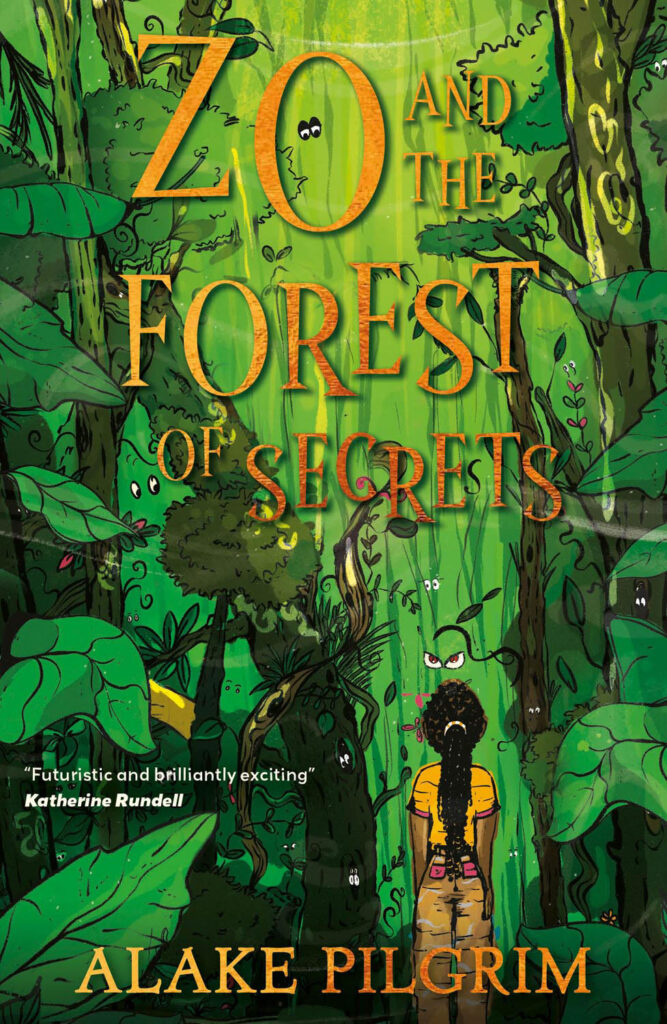This month’s reading picks from the Caribbean, with reviews of Zo and the Forest of Secrets by Alake Pilgrim; Neruda on the Park by Cleyvis Natera; The Drowned Forest by Angela Barry; and Matters Arising by Kenneth Ramchand
Zo and the Forest of Secrets
by Alake Pilgrim (Knights Of, 200 pp, ISBN 9781913311292)
Narnia has nothing on the imaginative pathways of Alake Pilgrim. In her middle-grade debut, the two-time Caribbean region winner of the Commonwealth Short Story Competition flexes her creative muscles, imbuing a fantastical world with all the colourful commotion of a Trinidadian thriller for young readers. Our protagonist Zo is both intrepid and resourceful: a blueprint for parents seeking to instil progressive mettle in their children, and the forerunner of a generation which must (as the novel gently prompts) be concerned about a burgeoning climate crisis. Descriptive prose swirls around generous nods to traditional Caribbean storytelling — but these are no rehashed symbolisms, no paper cut-outs of horned protectors or river spirits. Zo and her troupe of friends, each of them uniquely suited to survival in a very real Trinidad & Tobago, are bound to inspire endlessly.
Neruda on the Park
by Cleyvis Natera (Ballantine Books, 336 pp, ISBN 9780593358481)
Can you be a good immigrant when the walls you were forced to build start crumbling? The Guerreros have made Upper Manhattan their home for many years, toiling to solidify their status as respectable Dominican-Americans, working in service of their community. Nothar Park has become their modest but indisputable dominion — a security that shatters as soon as the first high-priced condominium is advertised, and the threats of moving vans roll onto their streets. Luz, her mother Eusebia, and father Vladimir each react to the looming axe of gentrification with revolving resignation and revolt, creating a tapestry of intergenerational responses to the encroaching pillars of capitalism and racism. Natera’s debut has been 15 years in the making; Neruda on the Park shows a prodigious care for the Caribbean diaspora enclaves so instrumental in defining the United States.
The Drowned Forest
by Angela Barry (Peepal Tree Press, 272 pp, ISBN 9781845235376)
An ancient cedar root is retrieved from the watery deep in a place where once no seawaters rose. Drawing from this real-life environmental marvel, Angela Barry animates the past and present faces of Bermudian society in a potent, history-mired novel. Genesis Smith — a youth offender caught in the crosshairs of systemic violence and cyclical abandonment — finds a cohort of disparate yet well-intentioned figures who make her rehabilitation their concern. In each of their voices, Barry allows a portal to open — a pathway into what being Bermudian means, and all the stations of class, respectability, defiance and dreaming it embodies. As attuned to the nation’s contradictions as she is to its astonishing beauty, Barry crafts a space for the novel as eco-witness, semaphoring critical attention on how we might collectively heal a fragmented archipelago. These storytelling roots hold fast.
Matters Arising
by Kenneth Ramchand (Royards Publishing Company, 244 pp, ISBN 9789768303711)
How do you take the pulse of a nation? The key to writing about a people — our people — is a steadfastness of gaze, as the essays in Matters Arising prove. Professor Emeritus of English at the University of the West Indies Kenneth Ramchand puts the life of the public intellectual to the test of the page in non-fiction observations that both sear and soar — cutting in their conclusions but generous in their ambit. These newspaper columns, originally published in the Trinidad & Tobago Guardian, represent a fine cross-section of Ramchand’s originary thought from 1987 to 1998. Notable contemporary essays have been added too, contemplating these Covid times and our regional place in them. Hewn with thoughtfulness, wit, picong, and a sly scattering of mauvaise-langue, these reflections don’t seek to redefine us to ourselves, but to attend us, faithfully.

